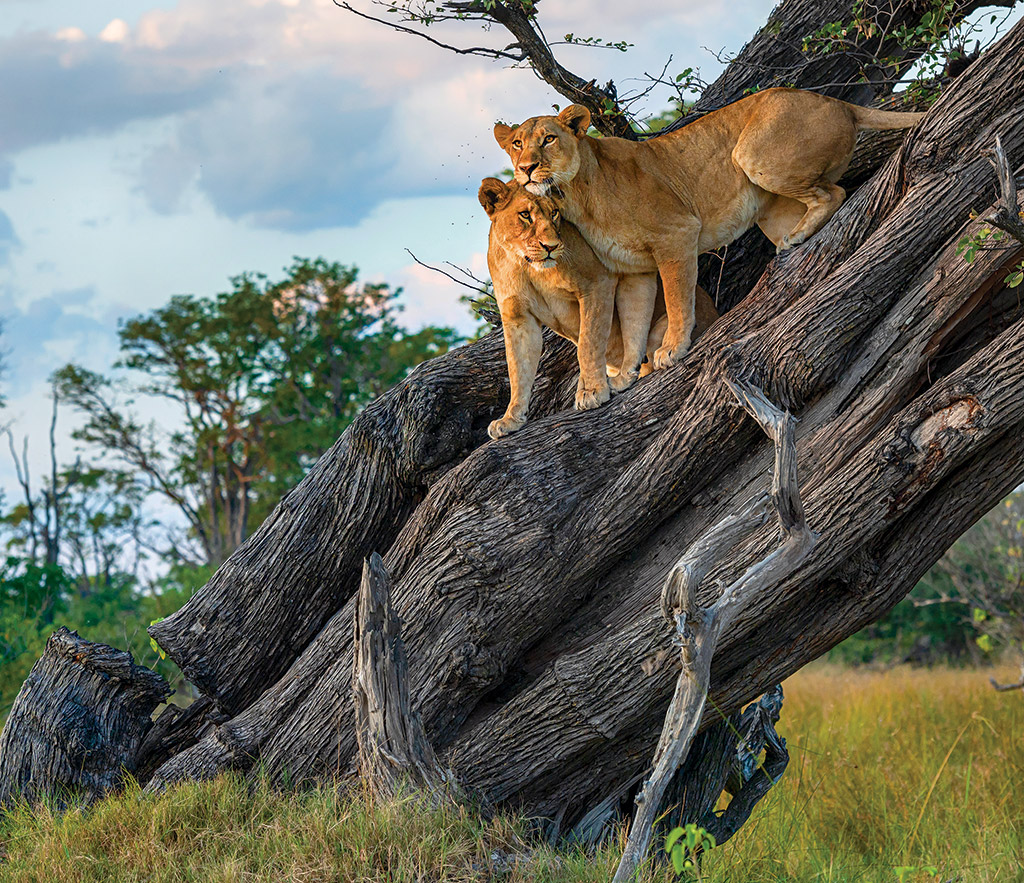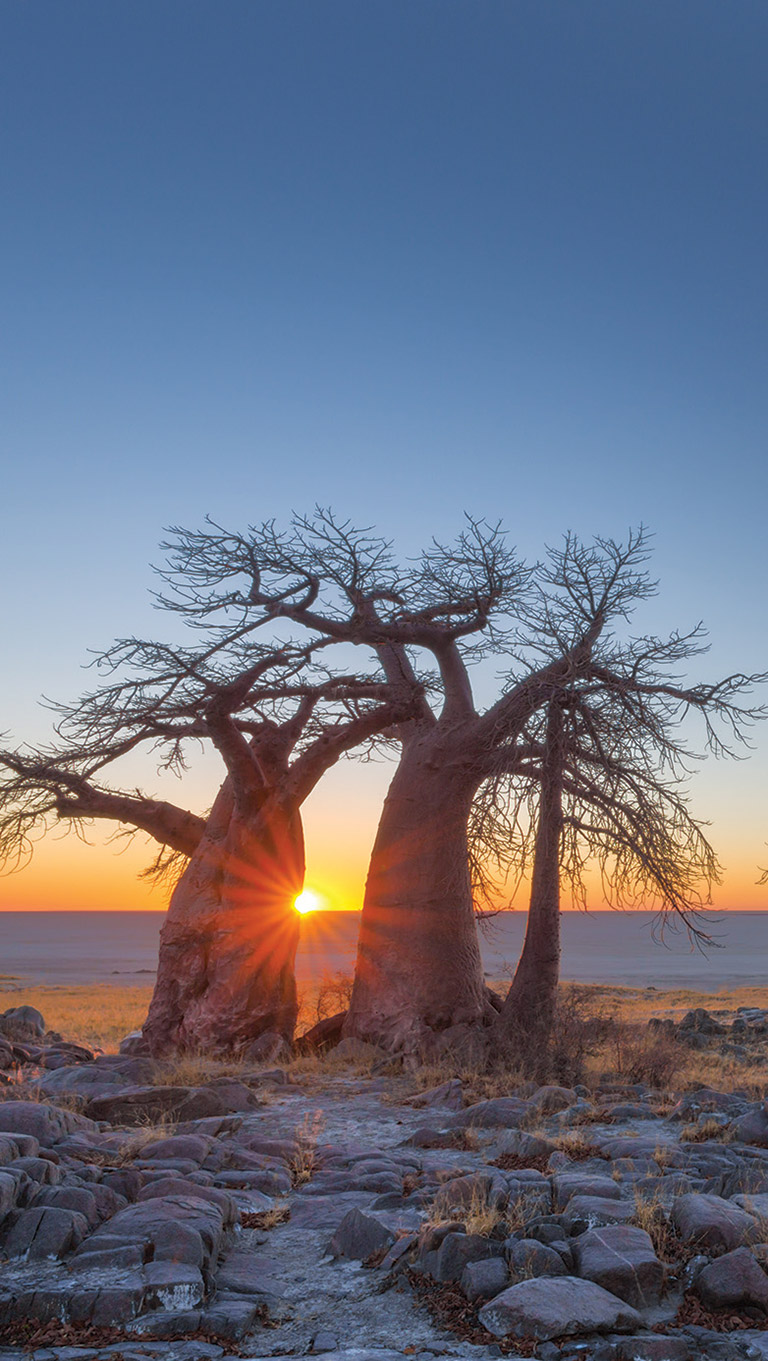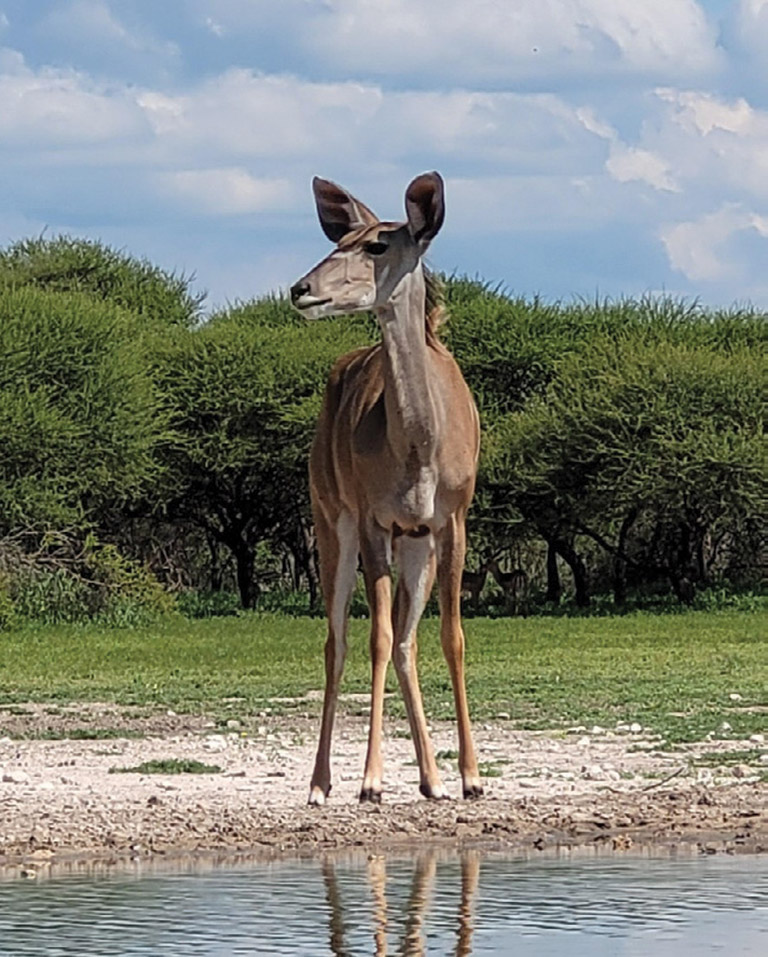ON SAFARI

A female lion and her son rest in a tree in the Moremi Game Reserve in the Okavango Delta.
Take a walk on the wild side
Highly trained guides in Botswana know the topography and habits of the wildlife. “They can track the animals, so you see more of them.”

Sunrise at Kubu Island, Botswana
Londoner Richard Rastin feels that there are many reasons to love Botswana. As part of the Commonwealth, Canadians don’t need a Visa to visit; English is commonly spoken and no inoculations (other than proof of COVID vaccines) are required. But the thing he enjoyed most about his visit there in March of 2022 was being able to get up close with the wildlife on walking safaris.
“Botswana is the home of walking safaris,” says Rastin, a travel agent with Travel Genuine. He adds that the key to having an excellent walking safari experience is getting a great guide. “In Botswana, the guides are trained and licensed, which is a long process. They are the most sought-after. They can track the animals, so you see more of them.” Being very specific about the types of animals you want to see is also important when planning your trip.

A bushback is a type of antelope
Rastin’s group of travel agents landed in Zimbabwe and took in the famous Victoria Falls as their first stop; then they journeyed to various sites in Botswana. There they were the guests of Ker and Downey and Imvelo Safari Lodges. He describes the accommodations as a cross between “a small boutique hotel experience and being at the cottage.” Framed canvas-roofed buildings provide luxurious surroundings in the wild.
There are indoor washrooms and showers, excellent cuisine, outdoor seating areas and some have swimming pools. Regarding the latter, Rastin recounts a tale of waking up very early one morning to the sight of an elephant drinking out of the pool adjacent to his room. Most have six or 10 units, accommodating about 20 people at a time, he says.

An oryx in the Kalahari Desert
The group experienced walking and driving safaris in the national parks of the Kalahari Desert where they saw black-maned lions – and the Okavango Delta, the world’s largest inland delta where a plenitude of water attracts a wide variety of wildlife. This allowed them to see an assortment of local fauna, including endangered spotted dogs, rhinos, hippos, lions, antelope and oryx. While observing at the delta, the group was stunned to watch a cheetah hunt, capture and drag away a newborn impala. This kind of close-up experience is the real benefit of doing a walking safari, Rastin elaborates.
“The tour guides are excellent. Ours tracked a pride of lionesses, and I was able to sit and take pictures without a crowd of people around. They (the guides) have an understanding of the topography and animal behaviour and know how to respect both,” says Rastin. “In South Africa (where he’s previously visited), a lion crossing the road causes a traffic jam.”

A black-maned lion in the Okovango Delta
He adds that “this is not a zoo; you have to respect the animals. You’re a guest and it’s their playground.” Botswana is known as the Land of the Elephants and Rastin’s group saw many of them.
Rastin says a typical day starts early with one’s choice of morning beverage brought to his/her room then on to the dining area for a “beautiful, luscious breakfast.
They take allergies and other dietary needs into account.” A drive to one of the area watering holes where the animals are starting their day with a drink of water is the next highlight. After watching the wildlife and their morning ablutions, the group heads back to the lodge for lunch. The afternoon safari may take visitors to a different area to see more animals. After an afternoon rest, those who choose to can experience one of Africa’s famous sunsets over the plains during the last safari of that day. This experience often includes a picnic of cocktails and appetizers.

Botswana is known as the Land of the Elephants
During and after dinner, Rastin says guests share their experiences of the day and then turn in early since they’ll be up early the following morning for another safari. During evening downtime, Rastin had opportunities to chat with some of the staff members who were weaving goods to sell at markets and learn more about their culture and way of life. “They were as interested in talking about my life in London, Ontario as I was in theirs.”
Though he was near many wild animals, Rastin says he never felt unsafe because of the skill and knowledge of the guides.
